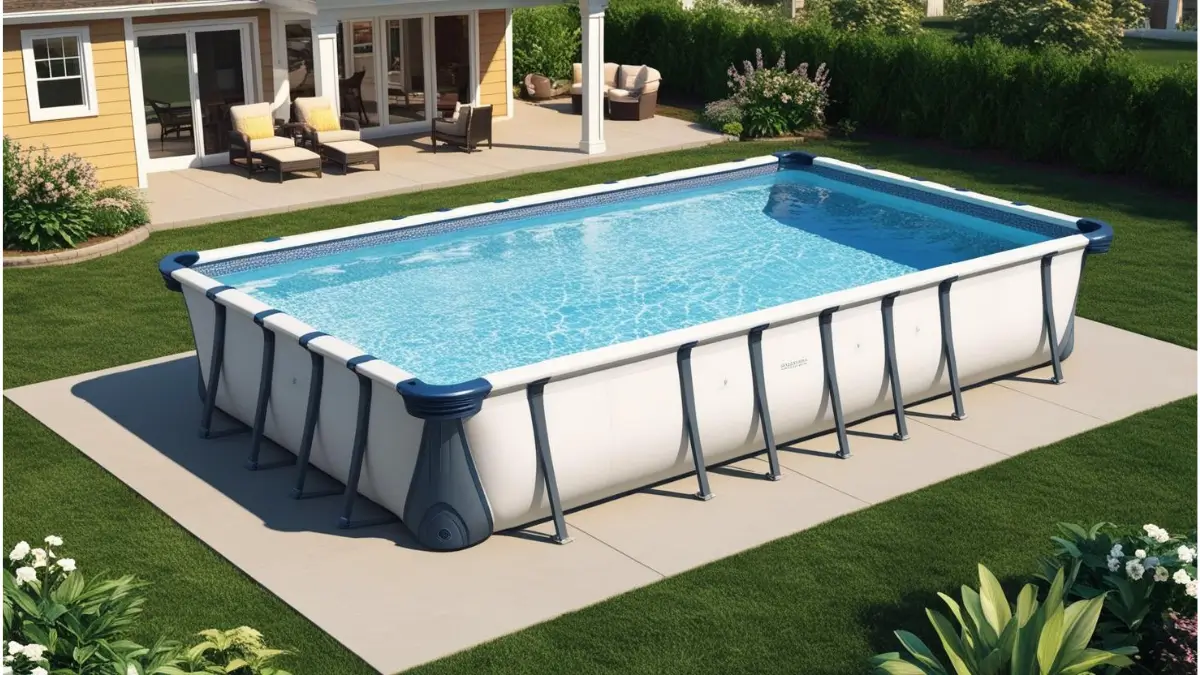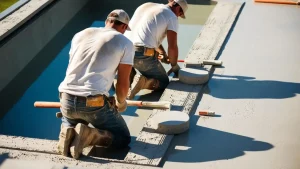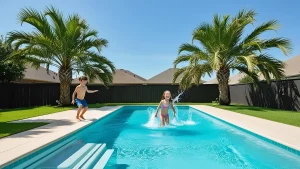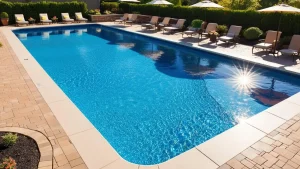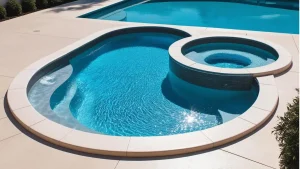A swimming pool is one of the best ways to enjoy summer or to relax in a fresh environment. While larger pools require more water and maintenance, above-ground rectangular pools offer an affordable, water-efficient, and low-maintenance solution for homeowners. This pool enhances any backyard with its functional design, creating a relaxing atmosphere.
Why Choose Small Rectangular Above Ground Swimming Pools?
The compact design of above-ground rectangular pools makes them easy to maintain and efficient in water usage. Here are some important reasons to consider them:
- Space-saving: Small pools are ideal for compact backyards, patios, and gardens.
- Cost-Effective: Small pools are more affordable and better suited for homeowners with limited space.
- Quick Installation: Many models can be ready in hours or a day, saving time and effort.
- Lower Maintenance: As less water is used, less chemicals and cleaning work are required.
- Versatile Designs: Available in multiple shapes and sizes to suit the outdoor aesthetic of different people.
Benefits of Rectangular Above Ground Swimming Pools
Rectangular pools are particularly popular for their modern appearance and practical design, as well as for their above-ground. Their benefits include:
- Efficient Use of Space: The straight banks of a pool allow better use of backyard space than round pools.
- Ideal for Swimming: Their elongated shape is perfect for laps and water exercises.
- Elegant Aesthetic: Clean lines improve the overall look of the backyard or courtyard of the house.
- Easy to Cover: Rectangular pools are easier to cover and protect when not in use, compared to round or irregular-shaped pools.
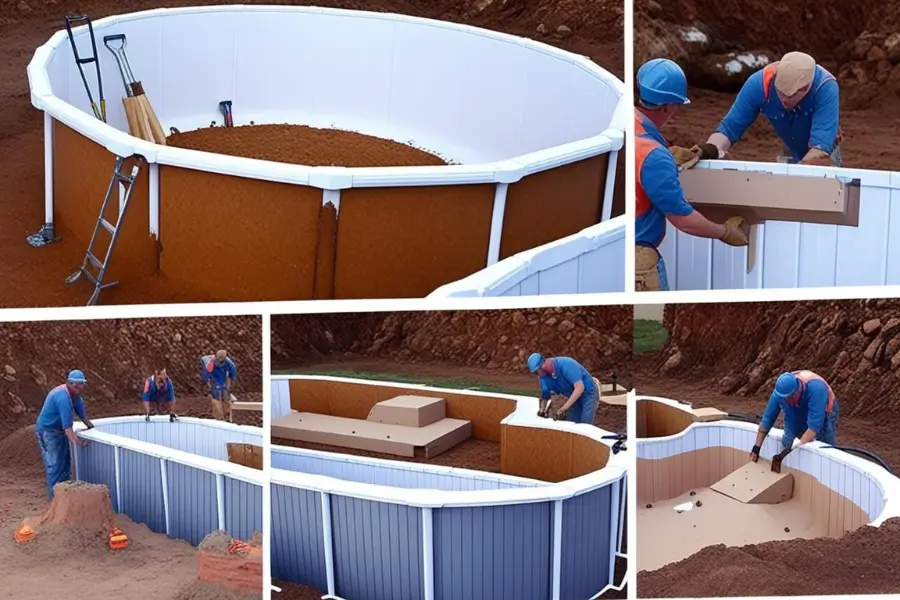
Installation Process for Small & Rectangular Above Ground Swimming Pools
Installing a small rectangular above-ground pool is a simple process when done correctly. Following the right steps ensures stability, longevity, and safe use of your pool.
Choose a Suitable Location
- Pick a flat, level spot in your backyard. Avoid rocks, roots, and debris. Ensure good drainage to prevent water buildup. Look for overhead obstructions such as tree branches or electrical lines.
Prepare the Ground
- Clear the area and remove uneven surfaces. Use a sand base or pool pad to protect the liner. Compact the ground well to prevent shifting over time.
Lay Down a Protective Liner
- Place a pool liner or ground cloth over the base. This prevents punctures and ensures a smooth surface.
Assemble the Pool Frame
- Follow the manufacturer’s instructions. Ensure all parts are aligned and securely connected. A stable frame ensures durability.
Install the Pool Liner
- Lay the liner inside the frame. Smooth out wrinkles to prevent leaks. Adjust as you fill the pool to keep it even.
Fill the Pool with Water
- Add water slowly and evenly. Watch for misalignment or folds in the liner. Adjust if needed.
Set Up the Filtration System
- Attach the pump, skimmer, and filter. Check all connections for leaks. An effective filtration system maintains the water’s purity.
Balance the Water Chemistry
- Test pH and chlorine levels. Maintain proper balance for safe and clear water.
Final Check Before Use
- Inspect the pool for stability. Ensure the filtration system works. Use a pool cover when not in use to keep debris out.
By following these steps, you can ensure an easy and efficient installation while maximizing the longevity and enjoyment of your pool.
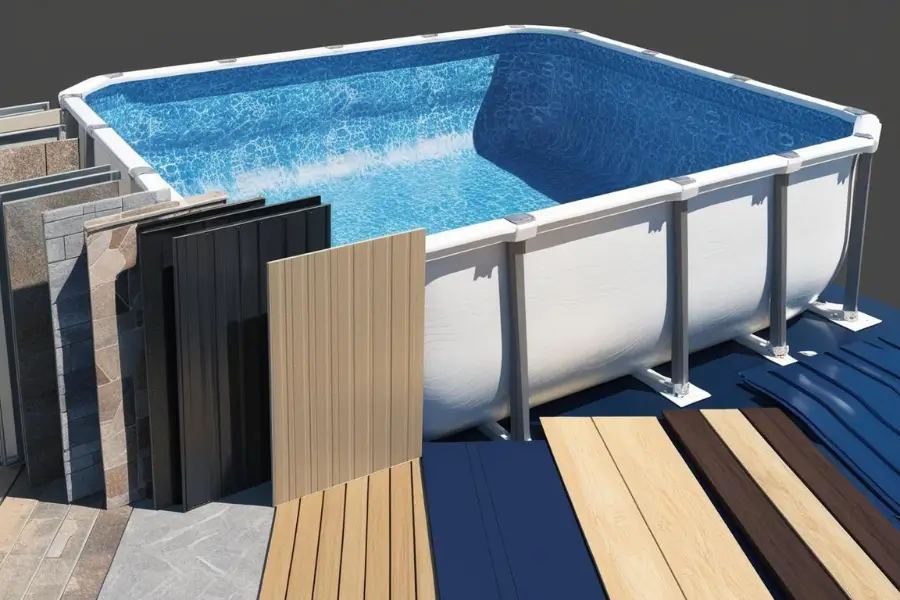
Best Materials for Small & Rectangular Above Ground Swimming Pools
Above-ground swimming pools come in various forms. Each one offers unique benefits:
- Steel: A strong and durable material, but it can rust over time without proper maintenance.
- Resin: Resistant to corrosion and heat, making it a long-lasting option.
- Aluminum: Aluminum is durable, light in weight, and does not rust. Great for portable use.
- Vinyl Liner: Vinyl liners provide a soft surface, but they require replacement every few years.
Top Small & Rectangular Above Ground Swimming Pools
- Intex Rectangular Frame Pool: These rectangular frame pools are easy to set up, with solid frames and durable liners.
- Bestway Power Steel Rectangular Pool: Has a sturdy steel frame and built-in filter.
- Summer Waves Elite Rectangular Pool: Stylish, functional, and durable.
- Coleman Power Steel Rectangular Pool: Rust-resistant with textured liner.
- Blue Wave Martinique Rectangular Pool: Steel walls and resin coating for longer life.
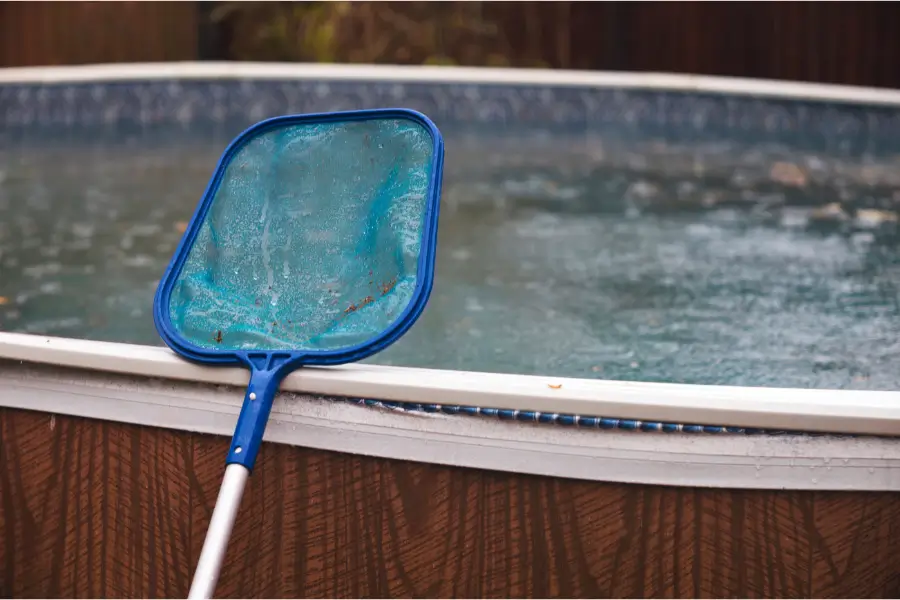
How to Maintain a Small & Rectangular Above Ground Swimming Pool
Tips to Keep Your Pool in Good Shape:
- Regular Cleaning: Use a skimmer to remove debris and a vacuum for the bottom.
- Maintain Water Chemistry: Test regularly for chlorine and pH.
- Use a Pool Cover: When not in use, use it to prevent debris and leaves from gathering within the pool.
- Filter Maintenance: Clean and replace filters as needed.
- Check for Leaks: Inspect the liner and frame for any signs of damage.
Final Thoughts
A small rectangular above ground swimming pools is a budget-friendly, low-maintenance, and space-saving addition to your backyard. With quick installation, minimal maintenance, and durable materials, these pools provide the ultimate relaxation and fun. Transform your backyard into a personal oasis! Discover the best small rectangular above-ground pools and start enjoying endless summer fun today.
Frequently Asked Question
What size qualifies as a small above-ground pool?
A small above-ground pool is typically 8 to 16 feet in length and up to 4 feet in depth.
Are rectangular above-ground pools more expensive than round ones?
Yes, rectangular pools can be more expensive than round ones due to their frame structure, but they maximize available space efficiently.
Can a small above-ground pool be heated?
Yes, small above-ground pools can be heated using a solar cover, an electric heater, or a gas heating system, depending on your preference and budget.
How long do small above-ground pools last?
Steel or resin-framed pools last 10–15 years, while vinyl liner pools last 5–7 years with proper care.
Do I need a permit to install a small above-ground pool?
Rules may change depending on the specifics. It’s better to consult your local authorities for the exact requirements.

